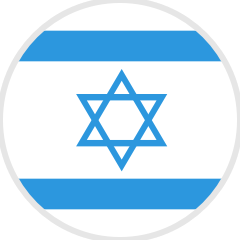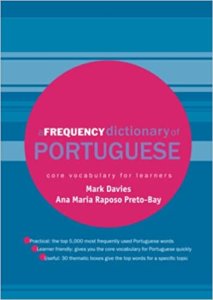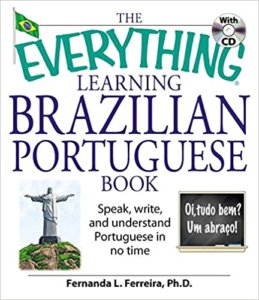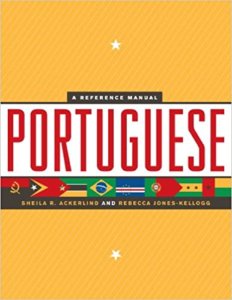How To Learn Portuguese by Following 13 Essential Tips
Bom dia! Are you wondering how to learn Portuguese quickly? You’re in the right place! This article will show you the best tips to master this wonderful European language.
Why learn Portuguese?
Portuguese is definitely worth learning. It’s the 9th most spoken language in the world, with a whopping 257.7 million native speakers worldwide.
It’s also the official language of nine countries: Angola, Brazil, Cabo Verde, Equatorial Guinea, Guinea-Bissau, Mozambique, Portugal, Sao Tome and Principe, and Timor-Leste. In other words, you’ll have plenty of people to use it with!
Portuguese is also easy to learn for native English speakers. Given that both languages evolved from Latin, English and Portuguese share plenty of similarities when it comes to grammar and vocabulary.
So, are you hyped to start learning Portuguese? Read along and discover the best tips to master this bonafide global language fast.
Or, if you want to start immediately, download the Fluent Forever app and sign up for our Live Coaching program for a proven, effective way to learn Portuguese!
Benefits of learning Portuguese
How long does it take to learn Portuguese?
Is Portuguese easier than Spanish?
Brazilian vs European Portuguese: Which Portuguese should you learn?
How to learn Portuguese fast: 13 fluency tips
- Set a personal fluency goal
- Commit to your study time
- Hear the sounds of Portuguese
- Use a frequency list
- Acquire vocabulary with flashcards
- Grasp the grammar fundamentals
- Learn common phrases and expressions
- Use a language learning app
- Consume media in Portuguese
- Practice speaking as much as possible
- Read a lot!
- Go for full or partial immersion
- Sign up for a course
Can you learn Portuguese for free?
Learn Portuguese with Fluent Forever
Benefits of learning Portuguese
Every language comes with its own set of perks. Portuguese is no different. Here are some of the benefits that come with this European language.
Travel – We mentioned that Portuguese is the official language of nine countries in three different continents. Without a doubt, you’ll be able to travel more confidently in these places with their official language under your belt. There’s no easier way to earn brownie points with locals than by speaking their own language!
Business – Brazil, the largest Portuguese-speaking country, is also one of the largest emerging economies in the world. Knowing the official language of this Latin American giant can create business opportunities for you or your business in the region. What’s more, Portuguese speakers make for attractive hires in the tourism, international business, education, and translation sectors.
Culture – Portuguese can allow you to appreciate more deeply the arts and media of countries like Brazil and Portugal. Enjoy music, podcasts, movies and series, and literature in their original and unconstrained language!
Is Portuguese hard to learn?
The short answer is no. As a matter of fact, the Foreign Service Institute (FSI), which is the institution responsible for training US diplomats, labels Portuguese as a Category I language. It describes languages in this category as “languages more similar to English,” so it’s relatively easy to pick up as a foreign language for English speakers.
To put this in perspective, Japanese and Mandarin Chinese, two languages that are entirely different from English in terms of alphabet, grammar, and pronunciation, are Category IV languages. This group comprises “super-hard languages,” making them exceptionally difficult for native English speakers.
That being said, this ranking is based on the FSI’s courses and methodologies, as well as on English speakers exclusively. There are other factors, like previous language learning experience and having another native language, that can influence how hard or easy Portuguese is for you.
For example, a native Spanish speaker who has already learned a foreign language will probably find Portuguese easier than an English speaker.
How long does it take to learn Portuguese?
According to the FSI, it takes one of its students 24–30 weeks (600–750 class hours) to reach a working proficiency in Portuguese. Naturally, a person’s progress and level of mastery will change depending on different factors.
For instance, varying degrees of motivation and consistency in study hours will either speed up or slow down the progress. Additionally, less ambitious fluency goals with Portuguese can also make reaching fluency faster.
Let’s consider someone who’s looking to learn enough Portuguese to visit Brazil for the summer. They will need less time to reach fluency than, say, someone who wants to become a journalist in São Paolo.
Is Portuguese easier than Spanish?
Following the FSI’s system, both Portuguese and Spanish are Category I languages. In other words, they should be just as easy to learn for native English speakers.
However, Spanish tends to be easier because it’s more phonetic – words are usually pronounced as they are spelled. Portuguese has more silent letters, vowel sounds, and accents to deal with. So, more often than not, beginner Portuguese learners will fumble with pronunciation more than anyone studying Spanish.
Brazilian vs European Portuguese: Which Portuguese should you learn?
Brazil and Portugal are the two most influential Portuguese-speaking countries, and they represent the most significant versions of the language. Portugal is its birthplace, while Brazil houses the biggest number of native speakers.
The good news is that both variants are 100% mutually intelligible. In other words, a person from Portugal and another from Brazil are able to understand each other.
Still, there are some differences between the two, especially in pronunciation. For example, -s at the end of words like cachorros [kaˈʃɔʁuʃ] (dogs) sounds like “sh” in Portugal and “s” in Brazil, with the exception of certain parts of the country, like Rio de Janeiro.
Additionally, Brazilian Portuguese tends to pronounce vowels more clearly. On the other hand, people from Portugal close their mouths a bit more when they talk.
One other distinguishing feature is the gerund verb form, which changes across European and Brazilian Portuguese. In Brazil, gerund verbs end with ando, endo, or indo, whereas in Portugal they use the infinitive form endings ar, er, and ir.
Brazil:
Eu estou correndo. [ˈew iʃˈto koˈʁẽdu] – I am running.
Portugal:
Eu estou a correr. [ˈew ˈʃto ɐ kuˈʁeɾ] – I am running.
So, which version should you learn? Ask yourself these two questions:
- Which culture is more appealing to me?
- Where am I more likely to travel to?
If you’re going for the Brazil variant, you’re in luck! Our app will teach you Brazilian Portuguese.
How to learn Portuguese fast: 13 fluency tips
1. Set a personal fluency goal
Start by setting a personal fluency goal for your Portuguese. You can do this by asking yourself: Why do I want to learn Portuguese? Your goal should be personal enough to motivate you, and clear enough that you’ll know when you’ve reached it.
“I want to learn Portuguese to learn a new language” is a pretty vague reason. On the other hand, “I want to learn Portuguese to have weekly conversations with my Brazilian mother-in-law” is specific and personal.
2. Commit to your study time
How to learn Portuguese – or any language for that matter – boils down to one thing: showing up to your study sessions as frequently as possible. In other words, you must be consistent.
Naturally, the more time you spend studying Portuguese, the quicker you will learn it. That said, any amount of study hours is valid. Everyone’s life is different, and not everyone can commit 8 hours of their day to language learning.
So, focus on establishing a schedule and blocking a certain amount of time for your Portuguese. Also, make sure that you commit those precious minutes exclusively for Portuguese learning. No distractions allowed!
We have a neat list of time management tools for language learners that will help you get the most out of your study time.
3. Hear the sounds of Portuguese
When learners ask us how to learn Portuguese, the first thing we suggest is to become familiar with its sounds. By learning Portuguese pronunciation first, you prepare your ears to identify and retain the new vocabulary you come across.
You see, your ears are wired to the sounds of your native language. Consequently, our brains struggle to understand and remember foreign words. That’s why foreign names tend to land on our brains and immediately fly away.
Though the sounds of English and Portuguese aren’t that different, the latter does have a unique spelling and pronunciation system. For instance, nasalized vowel and consonant combinations – like ão as in mão [ˈmɐ̃w̃] (hand) and nh as in montanha [mõˈtɐɲɐ] (mountain) – might be unfamiliar to most native English speakers.
Portuguese pronunciation isn’t too hard to pick up. A great tool to achieve this quickly is our Pronunciation Trainer for Portuguese from Brazil. Our trainer teaches you all of the language’s key sounds using effective listening tests and flashcards.
If you want to speed up the process even more, download the Fluent Forever app. The app uses hundreds of effective and automated flashcard tests to train your ears to the sounds of Portuguese in a few weeks.
Get the app here.
4. Use a frequency list
The best way to learn Portuguese vocabulary is to learn from frequency lists, or compilations of the most commonly used words in the language.
By learning the vocab in these lists, you’ll be able to understand larger chunks of the Portuguese you come across in texts and conversations. In other words, you’ll get to speak, read, and understand Portuguese faster.
To start you off, we have built a list of the 625 most common words that is also available for Portuguese. The advantage of this list is that the vocabulary is arranged thematically in little stories. As opposed to random categories, these themes allow you to create more connections between terms, which in turn helps you learn them faster and remember them for longer.
After that, you can broaden your vocabulary with the Routledge Frequency Dictionary of Portuguese, which is widely available and contains vocabulary and grammar from the European and Brazilian variants. The price isn’t too bad either! Additionally, consider grabbing the Learn Brazilian Portuguese – Word Power 101 eBook – it contains loads of quality example sentences.
Portuguese (Brazilian) Vocabulary for English Speakers – 7000 Words is a book full of core vocabulary for just about any field or topic you can think of. Lastly, learn-portuguese-now.com has a list of the first 350 most frequent words with example sentences from the Brazilian variant.
5. Acquire vocabulary with flashcards
Rote memorization and direct translations are the traditional methods used to learn vocabulary in a foreign language. However, flashcards provide a much more effective tool to achieve this same end.
Making word flashcards with images as answers instead of direct translations creates a powerful learning experience. The process of making these cards allows you to quickly register new vocabulary and retain the words for longer periods. That’s why we use flashcards in our app!
In addition, our app uses an integrated spaced repetition system (SRS) to create personalized flashcard review sessions. This means that you’ll spend your time studying the terms you need the most help with, instead of reviewing words you already know.
Start learning with our app today.
6. Grasp the grammar fundamentals
Portuguese grammar is not completely different from English. For instance, sentences can be formed with the familiar subject verb object (SVO) structure that’s also used in English.
That said, some elements of Portuguese grammar do present some challenges to learners. Two of the main culprits are verb conjugations and gendered nouns.
Verb conjugations
All Portuguese verbs end with either -er, -ir, or -ar. Take correr [koˈʁeʁ] (to run), sorrir [soˈʁiʁ] (to smile), and chorar [ʃoˈɾaʁ] (to cry) as examples. This makes verbs in Portuguese easy to recognize.
Verbs with these terminations are in their infinitive forms. To use them in sentences, however, you’ll need to conjugate them according to the subject in question. So, correr becomes corro when used with eu [ˈew] (I), and corre with ele [ˈeli] (he).
Every subject follows its own conjugation rules (or verb ending) linked to it. This applies to all verbs, regardless of their ending, though conjugations vary per ending.
Setting these rules aside are some irregular verbs that need to be memorized. Three such verbs are ir [ˈiʁ] (to go), ver [ˈveʁ] (to see), and ser [ˈseʁ] (to be).
Gendered nouns
Every noun in Portuguese is considered either masculine or feminine. That doesn’t mean that every word is inherently male or female. Rather, it is just a grammatical categorization system – similar to those in other languages, such as Spanish.
Masculine nouns use the definite article o before them, whereas feminine words use a. Think a mulher [a muˈʎeʁ] (the woman) and o homem [u ˈɔmẽj̃] (the man).
That said, some gender assignments can be arbitrary. A cadeira [a kaˈdejɾɐ] (the chair) is femenine, while o sofa [u ˈsɔfɐ] (the sofa) is masculine. Why? That’s just the way it is…
Similar to Spanish, adjectives also change according to the gender of a noun. For example, its o carro vermelho [u ˈkaʁu veʁˈmeʎu] (the red car) and a maçã vermelha [a maˈsɐ̃ veʁˈmeʎɐ] (the red apple).
One of the major components of speaking and writing Portuguese is memorizing the gender of each noun. It’s important to make peace with the fact that you will have to learn each one.
But remember, it’s important not to obsess about grammar. Don’t let having perfect grammar stop you from speaking or writing in Portuguese in the process.
Instead of poring over grammar books and rules, try to pick up grammar as you go in an intuitive and natural way. In other words, try to identify the patterns, rules, and exceptions as you progress through Portuguese.
However, if you really want to dive into this language’s grammar, there are three grammar books we highly recommend.
First, the Everything Learning Brazilian Portuguese Book comes with a CD (don’t get the Kindle version; the CD is really important). It starts with pronunciation and takes you through the language in a fairly standard, competent way.
Second, Essential Portuguese Grammar is a bit textbook-y and comes with straightforward explanations and examples. The book is based on Portuguese from Portugal.
Third, if you’re an intermediate student and like books that lean more into linguistic theory, try Portuguese: A Reference Manual, which covers different elements of the language in both its main variants.
7. Learn common phrases and expressions
One of the fastest ways to speak Portuguese is to start using common phrases and expressions. Just like a handy compass, you’ll find these useful to navigate conversations in daily situations.
Below are some common phrases in Portuguese you should keep handy – they are based on the Brazilian variant of the language:
Como vai? [ˈkɔmu ˈvaj] – How are you?
Tudo bem [ˈtudu ˈbẽj̃] – Everything is OK
Tchau [ˈtʃaw] – Bye
Até logo! [aˈtɛ ˈlɔɡu] – Until later!
Até amanhã [aˈtɛ ɐmɐˈɲɐ̃] – Until tomorrow
Bom dia [ˈbõ ˈdʒiɐ] – Good morning
Boa tarde [ˈboɐ ˈtaʁdʒi] – Good afternoon
Boa noite [ˈboɐ ˈnojtʃi] – Good night
Obrigado [obɾiˈɡadu] – Thank you
Por favor [puʁ faˈvɔʁ] – Please
De nada [dʒi ˈnadɐ] – You’re welcome
Qual é o seu nome? [ˈkwaw ˈɛ u ˈsew ˈnɔmi] – What is your name?
Meu nome é… [ˈmew ˈnɔmi ˈɛ] – My name is…
8. Use a language learning app
Language apps are effective and interactive tools that can fit in your pocket. But with so many options available, it can be easy to choose the wrong one.
And with all the different ways that exist to learn a new language, some apps might rely on ineffective methods. For example, apps which use rote memorization to teach you vocabulary can slow down your progress and make things unnecessarily difficult to grasp.
If you’re going for a language app, pick one that’s both fun and effective. Check out this honest Fluent Forever app review to learn more about the proven method behind our groundbreaking app.
9. Consume media in Portuguese
Once you have a solid grasp of Portuguese, you can supplement your language learning with Portuguese music, podcasts, movies and series, and YouTube channels. These resources are engaging and extremely useful in providing you with native-level pronunciation and new vocabulary.
You can start with IMDB’s top Brazilian films on Netflix and our article on Top Portuguese Movies on Netflix. Lastly, check out this list of Brazilian YouTubers. You can also check out our top Netflix recommendations for movies in Portuguese.
10. Practice speaking as much as possible
Books, apps, and YouTube videos will only get you so far. Sooner or later, you will need to actually use your Portuguese. So, once you have a handle on things, speak as often as possible.
Ideally, you should practice regularly with a native speaker. Native speakers will provide immediate feedback, new vocabulary, and an engaging and fun way to learn Portuguese.
The next best thing you can do is work with a language tutor. Besides usually being native speakers, language tutors have experience with methods and tools to teach a new language.
Fluent Forever’s Live Coaching program pairs you with your very own native-speaking Portuguese coach for regular daily, biweekly, or weekly sessions. Your coach will create personalized sessions based on your goals and interests to get you to speak Portuguese fast.
Sign up for Live Coaching here.
11. Read a lot!
Reading Portuguese texts is a fantastic way to build vocabulary, grammar skills, and knowledge. You should start small with online articles and short stories, then move on to bigger, more complex texts once you’re more comfortable in the language.
Short Stories in Brazilian Portuguese for Beginners is part of a series that covers narratives in different languages. The Portuguese version compiles a number of short stories in various exciting genres.
Once you’re ready for longer forms of reading texts, you can check out the popular Harry Potter book collection. They’ve been widely translated, and they’re easy to get hold of.
12. Go for full or partial immersion
The most effective way to learn a new language is to fully immerse yourself in a country where they speak it. In this way, you’ll be speaking, reading, and thinking in your target language 24/7.
Of course, not everyone can drop everything and relocate to Brazil for 6 months or so. Fortunately, there are ways to mimic full immersion and surround yourself with Portuguese as much as possible.
Here are some self-immersion techniques you can try at home:
- Create flashcards for objects around your house using post-its
- Change the language settings in your electronics to Brazilian Portuguese
- Volunteer or work in a place frequented by native speakers
- Try following recipes in Portuguese
- Talk to yourself in Portuguese (it works!)
13. Sign up for a course
Some folks prefer a more structured approach when learning Portuguese. In these cases, online courses can provide highly effective and comprehensive resources.
There are many online Portuguese courses ranging from beginner to advanced levels. Additionally, the price bracket can vary to fit different budgets.
Besides usually covering all aspects of Portuguese – pronunciation, vocabulary, and grammar – language courses allow you to learn at your own pace and time. Furthermore, they are usually regularly updated to cover new subjects and materials.
Here’s a list of popular online courses for Brazilian Portuguese you can check out:
Can you learn Portuguese for free?
Thanks to the wonderful online world of the internet, free learning tools have been made available for different languages. The same goes for Portuguese. Here are some handy resources that can help you learn Portuguese for free.
Priberam is a free online dictionary that provides accurate primary and secondary definitions of words. Linguee too is a highly accurate dictionary resource that covers many languages.
Lastly, LingQ’s free Portuguese grammar guide has a lot of information regarding grammar, vocabulary, and pronunciation.
Portuguese language resources
Pronunciation
Wikipedia’s comprehensive (but slightly overwhelming) IPA for Portuguese is an excellent resource to answer all of your pronunciation queries. Also, you could try the FSI’s free Brazilian Portuguese course. Although it starts slow, it covers Portuguese pronunciation fairly comprehensively.
Monolingual dictionary
Dicionário Editora da Língua Portuguesa is a reasonably priced European Portuguese dictionary available worldwide. The dictionary has an extensive general vocabulary and has been enriched with new common usage words.
Assimil
The Assimil series is a well-known method used by learners far and wide. It was made popular with French, but can be used to learn many languages, including Portuguese.
You can use the Assimil Brazilian Portuguese package as a support tool along with your other language resources and chosen learning method.
Dictionary
Dictionarist provides translations, example sentences, conjugations, and synonyms for a number of languages, including European Portuguese.
Learn Portuguese with Fluent Forever
Together, the Fluent Forever app and Live Coaching program provide the best way to learn Portuguese.
Step 1 – Use the app to rewire your ears to understand Portuguese pronunciation with automated listening tests.
Step 2 – Using flashcards, you pick up essential Portuguese vocabulary. Coupled with an SRS algorithm to create personalized review sessions, the app makes creating and reviewing these flashcards an easy and efficient process.
Step 3 – The app will teach you Portuguese grammar using the same vocabulary you’ve already learned. Using the same flashcard system, you’ll pick up the essential grammar rules of the language intuitively. Additionally, you can choose what sentences you’re interested in learning and skip the ones you’d rather not use. Lastly, you can add custom flashcards by adding sentences you’re interested in learning.
Step 4 – Through our Live Coaching program, you’ll speak the language in no time. All our coaches are 100% native speakers certified in our teaching method, and they will create personalized practice sessions based on your fluency goals.
So, are you ready to get your Portuguese on? Get the Fluent Forever app and join the Live Coaching program to learn Portuguese fast!
Disclaimer: As an Amazon Associate, Fluent Forever earns from qualifying purchases.
[shareaholic app="share_buttons" id="28313910"]

























